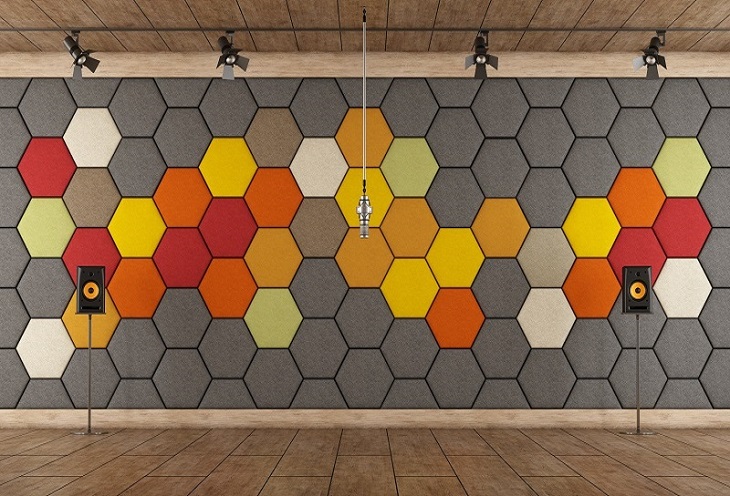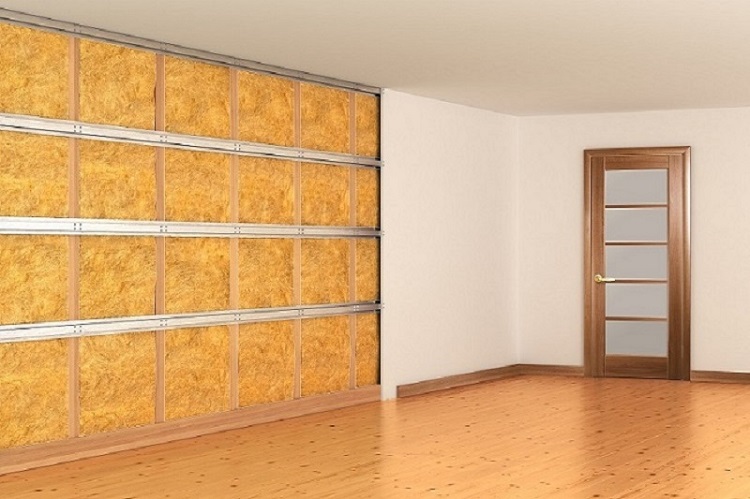The Advantages of Using Acoustic Panels- What To Know About
December 09, 2022Having quality sound in your environment is hard to come by these days. Acoustic panels are a great solution for this problem because they provide an effective way of creating the sound that you need in your space while serving as a cost-effective way of creating the sound your space deserves. In this article, we will look at the numerous benefits of using acoustic panels in your home or business; read on to know more in detail!
Some Benefits Of Using Acoustic Materials
Setting up a studio can be intimidating and expensive, but it doesn't have to be. We've put together some tips for how to set up your studio with acoustic panels.
The installation of acoustic panels and acoustic foam can significantly reduce the amount of echo that can be heard in a room. There will be less echoing and resonance with the use of these materials. Take away the annoyance of background noise and make your space feel better all around.
- More privacy and secrecy:
Soundproofing your house or office with acoustic insulation is a great way to ensure your privacy and protect sensitive business information because there will be no overhearing of conversations from other rooms or outside the building.
- Reduce noise-induced stress with acoustic panels.
These soundproofing materials lessen ambient noise levels, relieving some of the tension that might result from exposure to distracting noise.
Advantages of employing acoustic panels in recording studios:
- Panels designed to absorb and deflect sound waves are used in recording studios to help with volume control. This aids the musician in producing a more precise and satisfying tone.
- Acoustic panels are another way to make the studio feel cosier and more familiar to the artist. Sometimes better results can be achieved during a recording session if the artist feels at ease.
- Further, acoustic panels can lessen echoes and other sound reflections that might muddle or distort the audio being captured. Acoustic panels aid in producing a more professional recording by reducing these reflections.
Acoustic panels in a recording studio have the following drawbacks:
- Using acoustic panels in a recording studio does have a few drawbacks. The first is that, depending on the size and quality of the board, they can be pretty pricey.
- They are notoriously tricky to set up correctly, which might compromise the final product's audio quality.
- Finally, acoustic panels might have the unintended consequence of making a space quieter than planned.
- This can be an issue for musicians who rely on being able to feel the repercussions of their music to play effectively physically.
How to Set Up a Studio with Acoustic Panels?
Installing the panels properly is crucial for optimal performance. They should be positioned to reflect sound into the room, where it may be heard more clearly and where echoes can be reduced. Some advice is as follows:
- Panels should be installed on walls that are perpendicular to the propagation of sound.
- At least two feet should separate the panels from any shiny objects, such as windows or doors.
- Aim the panels at the noise maker.
- Keep panels away from loudspeakers and other noise makers if possible.
How do acoustic panels work?
Vibrations cause the release of energy, known as sound. That energy propagates away from the source, causing nearby objects and air to vibrate until some of that energy finally reaches our ears and is processed by our brains as sound.
The energy waves must be disrupted or stopped before they can get to our ears, which will significantly lessen the noise level. The purpose of acoustic panels is to absorb as much noise as possible. Sound is best absorbed by porous, soft materials like textiles and reflected by solid, hard, impenetrable ones like metals and concrete.
Conclusion
Ultimately, the key benefit of using acoustic panels is that they can make working in a recording studio much more tolerable. Even with soundproofing foam and double-paned windows, there's only so much you can do to block out loud noises. Acoustic panels will push your recordings over the top, allowing you to produce better-quality sound recordings every time.





0 comments